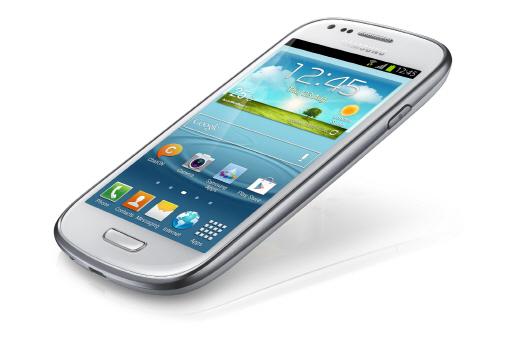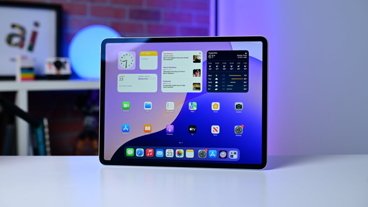A new profile of the love-hate relationship between Apple and Samsung details how the tech heavyweights springboarded off each other to emerge as the two dominant forces in the ongoing mobile computing revolution, while also disclosing that Apple CEO Tim Cook didn't share the same views as late company co-founder Steve Jobs in pursuing Samsung legally.
The two companies have been engaged in an international litigation since Apple filed suit in April 2011, alleging that Samsung's smartphone and tablet designs were largely copied from the iPhones and iPads that preceded them. Since then, the case has spread to courts in Europe, Asia and Australia. Cook, worried about the critical supplier relationship, was opposed to suing Samsung. But Jobs had run out of patience, suspecting that Samsung was counting on the supplier relationship to shield it from retribution.
But the modern day ties between Apple and Samsung were actually forged in a partnership back in 2005, when Apple was seeking out a stable supplier of massive quantities of flash memory. Jobs and Co. were betting the company on iPod Shuffle, iPod nano, and forthcoming iPhone designs that would forgo traditional hard disk drives with moving parts for solid-state versions based on NAND flash chips.
It was a time when the memory market was extremely unstable, and the Cupertino-based company wanted to assure that it was working with a supplier that was rock-solid financially, people familiar with the relationship told Retuers. And Samsung was already controlling half of the NAND flash memory market at that time.
The partnership gave Apple and Samsung insight into each other's strategies and operations. In particular, Samsung's position as the sole supplier of iPhone processors gave it valuable data on just how big Apple thought the smartphone market was going to be.….
As for Apple, it reaped the benefit of Samsung's heavy investments in research and development, tooling equipment and production facilities. Samsung spent $21 billion (23 trillion won) on capital expenditures in 2012 alone, and plans to spend a similar amount this year.
Within years, however, the relationship would stumble upon its share of turmoil as Samsung began gaining market share with its family of Galaxy devices that Jobs felt were largely aped off the innovations and hard work over at Apple.
When face-to-face meetings between Jobs and Samsung's top brass delivered little confidence that the Korean electronics maker would alter its designs to avoid further dispute, Jobs' strategy turned to the "thermo-nuclear" legal war that has been playing out in public courthouses across the world for the past 18 months.
But as Retuers reveals for the first time publicly, Tim Cook — then Jobs' Chief Operating Officer and CEO in grooming — would not necessarily have taken the same direction:
Tim Cook, Jobs' successor as Apple chief executive, was opposed to suing Samsung in the first place, according to people with knowledge of the matter, largely because of that company's critical role as a supplier of components for the iPhone and the iPad. Apple bought some $8 billion worth of parts from Samsung last year, analysts estimate.Court document from the Apple v. Samsung jury trial.
Apple was initially awarded a billion-dollar jury verdict against Samsung in Europe last August in a decision that appeared as if it would have sweeping influence in courts across the world. But Apple has recently faced trouble convincing U.S. courts to uphold those bands because the sheer success of the iPhone has made it difficult for the company to show any hard evidence of irreparable harm at the hands of Samsung. "Whoever controls flash is going to control this space in consumer electronics," Jobs said at the time, according to a source familiar with the discussions.
With the litigation slowly grinding to what Retuers has dubbed a 'stalemate,' Apple is moving to reduce its reliance on Samsung in the areas of manufacturing, while Samsung is focusing on its strategy of deploying its overly-broad range of mobile devices and creating memorable TV advertisements that mock the iPhone maker.
All that aside, however, Reuters cites people familiar with the matter who say the legal proceedings between the two sides have been "less poisonous to the relationship than some of the rhetoric suggests."
 Katie Marsal
Katie Marsal







-m.jpg)






 Marko Zivkovic
Marko Zivkovic

 Malcolm Owen
Malcolm Owen

 Amber Neely
Amber Neely

 Wesley Hilliard
Wesley Hilliard










106 Comments
Europe?
True, many people think California is different from most states, but I'm pretty sure that right now it's still part of the USA.
And yet Tim did not drop the suit after he became CEO and after Jobs died. And they initially won the suit to boot. High ranking executives disagree all the time but band together and put a united front outwardly, so not sure why this is news.
What the ridiculous "thermonuclear" narrative does is set up a situation where Apple cannot win.
Oh, they can certainly win it. They would be in the media if people would stop being paid by other companies to suppress the truth.
No, I don't have any proof of that. But YOU (not you, poke, third-person plural 'you') come up with a better explanation for the negative spin that has flown in the face of established fact ever since this crap started.
Who is/are Retuers? Never heard of 'em. oh. Maybe they mean Reuters? Great journalism. This really give a lot of confidence in what was written in the article.